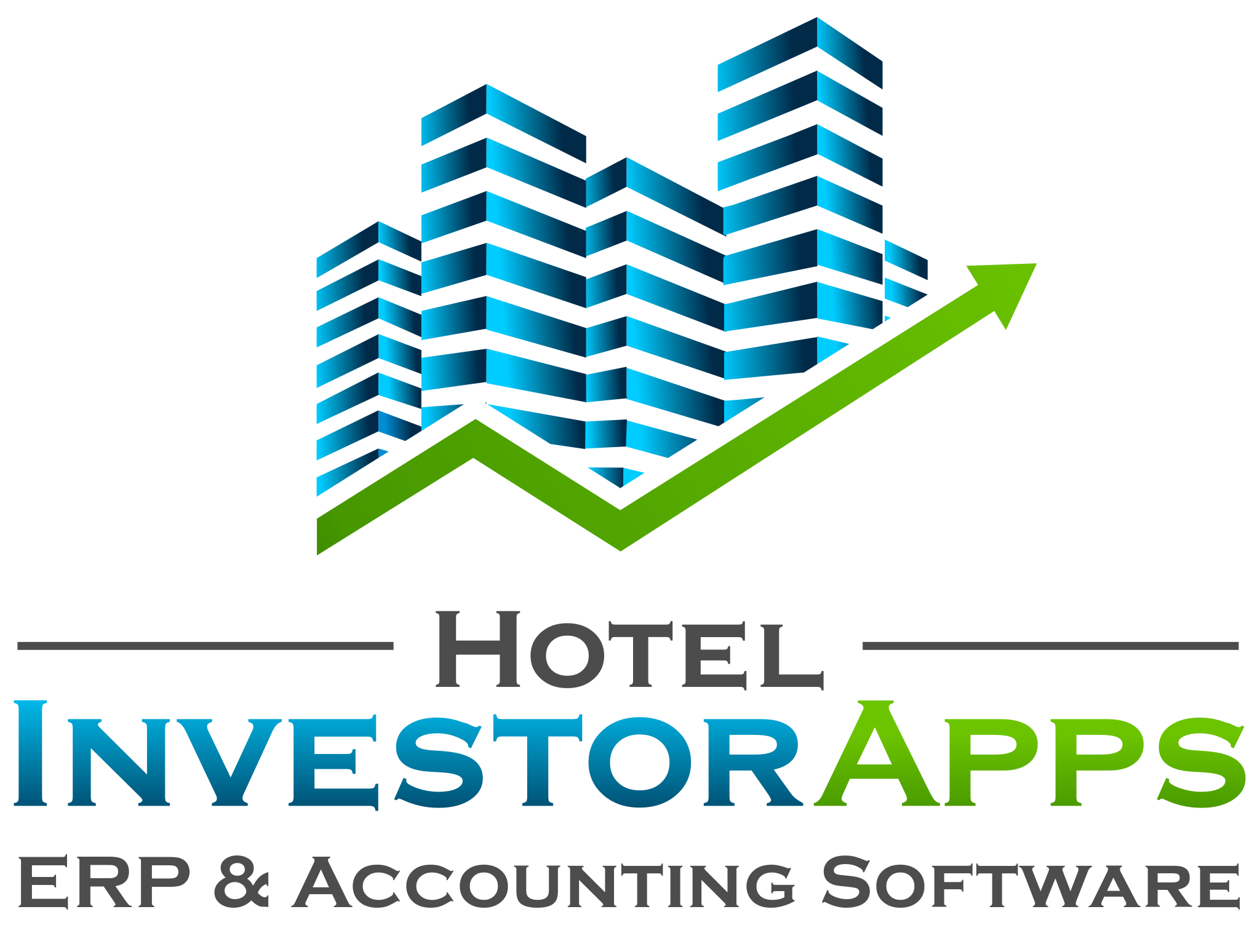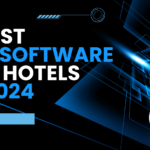Cloud reporting is the future of hotel analytics whether you’re consolidating your portfolios, running your financials, or conducting labor management.
Yet, many hotels still run their reports through Excel because, well, old habits are hard to break.
Even though Excel comes in handy when your hotel accounting software has limited reporting options, it genuinely lacks the powerful analytical tools needed to help you make data-driven decisions.
If you’re ready to unlock the full potential of your hotel performance and/or management company, you need access to an abundance of accurate and continuous information—and Excel won’t ever get you there.
From greater accuracy to enhanced business intelligence capabilities, cloud reporting solutions are designed to meet the needs of the hospitality industry today, and it’s time to make the switch.
| Key Takeaways |
|
What’s the Difference Between Excel and Cloud Reporting?
For many, Excel has been an accessible reporting option due to its ability to run complex calculations and organize data.
It has also been a fall back when your hotel software lacks the ability to easily create the custom reports you need, or can’t consolidate financial reports across your portfolio.
But when you compare it to cloud reporting software, it’s easy to see where it’s falling behind.
Cost
At first glance, using Excel may seem like a logical choice—It has a low start-up cost, tons of free resources, and many people are familiar with the program.
Despite these positive attributes, you need to ask yourself:
Is Excel really the budget-friendly choice, or does cloud reporting offer better value in the long run?
Excel might be a viable and cost-effective solution for someone managing a single hotel. But when you’re running multiple properties, it ends up costing you more than you initially anticipated.
Why? The hidden costs of manual inputting and maintenance. Think about it.
You spend hours every week manually keying in, or updating data, even formatting reports exported from your hotel’s software.
But when you start to scale and multiply that across a larger portfolio, it becomes a full-time job to make sure that everything gets entered appropriately and safely maintained.
Plus, you’ll have to invest in additional resources to ensure your reporting can keep up.
With cloud reporting, you don’t have to worry about that.
Modern accounting software with built-in advanced reporting options, including dashboards, seamlessly integrates with your systems, from property management systems (PMS) to payroll, and automates data processing and storage, virtually eliminating the need for manual interference.
You’ll pay a predictable monthly fee for access to a solution that provides a more efficient, streamlined experience than Excel.
Ease of Use
Excel’s versatility and ability to help users quickly analyze and manipulate data have contributed to its long-standing popularity.
But as the complexity of your hotel operation grows, so does the amount of time and effort needed to set up and maintain it. While there are plenty of resources available to help you out, you should be asking yourself:
Can Excel keep up with the speed and ease of cloud reporting?
The answer for most scenarios is no because Excel lacks the accessibility, integration, automation, and customization that cloud reporting has.
Collaborating on a spreadsheet is nearly impossible because Excel is limited to a single device.
If one user makes a change, then they have to export those changes and manually send them out. This limits your ability to delegate or even share updates with decision makers and owners.
Generating complex or extensive reports is difficult, to say the least. You’ll end up spending loads of time with error-prone data entry, and Excel might still be unable to handle your request.
And you can forget about automatically pulling in data from your existing hotel systems, such as your PMS, accounting software, and point of sale (POS) systems.
Cloud reporting, on the other hand, allows for data to be accessed or exchanged from anywhere, at any time, on any device, by any user who has access.
And since these solutions integrate with your existing software and systems, the data is automatically pulled in, allowing you to streamline workflows and increase efficiency.
Data Management and Security
From historical information to financial transactions, hotels must ensure their data is secure and protected against cyber threats.
Not adhering to rules and regulations surrounding sensitive data can result in serious repercussions for hotels. That’s why it’s crucial to ask yourself:
Is Excel’s traditional setup secure enough, or does cloud reporting take the lead?
Despite their versatility, Excel spreadsheets are not designed to function as a secure database or analytics tool.
For starters, its traditional setup does not offer full protection from loss or theft due to being stored on a local computer or network. If something happens to that device (virus, damage, etc.), all your data is either compromised or lost.
While it allows you to password-protect your spreadsheet, it doesn’t have any other checks to ensure that an authorized user gained access.
Plus, any user who has access could overwrite or delete information, causing you to lose precious historical data.
These problems are virtually non-existent with cloud reporting.
Aside from your data being encrypted and stored in secure servers, these solutions also have role-based access, meaning users can interact with the data they need and nothing more.
Reporting and Analytics Capabilities
Having robust reporting and analytics capabilities is critical for hotels to make informed business decisions and stay ahead of the competition.
Hoteliers need to be able to access accurate and up-to-date data to track performance, identify trends, and make data-driven decisions. While Excel has some useful reporting capabilities, you might wonder:
Does Excel offer comprehensive reporting, or is a cloud reporting solution a better option?
While Excel is a great tool for creating basic reports and charts, the truth is it was never designed for large-scale data analysis, calculations, or data visualizations.
Don’t get us wrong. It can handle them to some extent. But when it’s scaled in information-rich environments, Excel becomes downright unwieldy (despite its widespread use).
Cloud reporting solutions, on the other hand, offer advanced reporting and analytics capabilities, such as real-time data access, advanced calculations, and customizable dashboards.
They also allow organizations to combine multiple datasets for cross-departmental analysis, enabling them to gain a more comprehensive picture of their business.
Putting it into Practice
No matter which option you choose, Excel or cloud reporting, you’ll be able to use it to improve your hotel business. Here are some use cases to consider:
Financial Performance
Monitoring your hotel’s finances is essential to making informed decisions. When it comes to tracking that progress, Excel and cloud reporting both offer their individual strengths in particular instances.
Here’s a quick chart to show how they compare side by side:
| Use Case | Excel | Cloud Reporting |
| Basic Financial Tracking (daily sales, expenses, etc.) | ✅ | ✅ |
| Ad Hoc Financial Analysis (small dataset) | ✅ | ✅ |
| Budgeting and Forecasting | ✅ | ✅ |
| Real-Time Financial Data Access | ❌ | ✅ |
| Sharing and Collaborating Financial Information | Limited | ✅ |
| Advanced Financial Reporting and Analytics | ❌ | ✅ |
Guest Satisfaction
Hoteliers also find it useful to find out what your guests think about your hotel and use that information to make improvements. Here’s how Excel and cloud reporting solutions help:
| Use Case | Excel | Cloud Reporting |
| Simple Survey Tracking and Analysis | ✅ | ✅ |
| Real-Time Feedback Collection and Analysis | ❌ | ✅ |
| Interactive Dashboards for Visualization | ❌ | ✅ |
| Integration with Other Data Sources | ❌ | ✅ |
| Collaboration and Sharing | Limited | ✅ |
Occupancy and Revenue
Hotels and resorts often use reporting to track performance metrics such as occupancy rates, room prices, average daily rate, revenue per available room, and more.
Here’s how these two options stack up against one another:
| Use Case | Excel | Cloud Reporting |
| General Reports on Occupancy and Revenue | ✅ | ✅ |
| Daily Reports | ✅ | ✅ |
| Automatic Data Entry | ❌ | ✅ |
| Tailored Reports | Limited | ✅ |
| Integration with Existing Systems | ❌ | ✅ |
| Data Reconciliation Across Departments | ❌ | ✅ |
| Access to Historical Data | Limited | ✅ |
| Advanced Trend and Forecasting Analysis | Limited | ✅ |
Get More Out of Your Data with Hotel Investor Apps (HIA)
When it comes to data collection and analysis, Hotel Investor Apps (HIA) is one of the most trusted cloud-based accounting and enterprise resource planning platforms available today.
Unlike legacy accounting software which requires a dependency on excel for reporting, HIA is designed with advanced reporting capabilities, a custom report writer tool, and personalized dashboards to meet the needs of hotel managers at every level of the business.
Here’s just a taste of what HIA users can do
- Easily track and view dozens of key metrics in real-time from customizable dashboards
- Assign tailored dashboards and reports to specific job roles or tasks
- Access your data from anywhere with an internet connection
- Effortlessly collaborate and streamline operations between different departments
- Integrate all your existing systems and software into one platform
- Get a complete view of your hotel’s performance and make data-driven decisions to maximize its potential
Say goodbye to huge, unwieldy spreadsheets and hello to effortless collaboration and secure data management.
Schedule a demo to see the difference for yourself and join the many hoteliers who have already made the switch to HIA.

Co-founder and COO
Chip Fritsch, instrumental in overseeing HIA’s daily operations, brings 15+ years of hospitality industry experience to his role. His responsibilities span from product development to business growth strategies and client onboarding. A former full-service hotel General Manager, Chip knows the in-and-outs of hotel operations and that motivates him to develop new products and services to best support hoteliers. The past 7 years have seen Chip immersed in hospitality software where he has been pivotal in helping HIA win the Acumatica Development Award.











